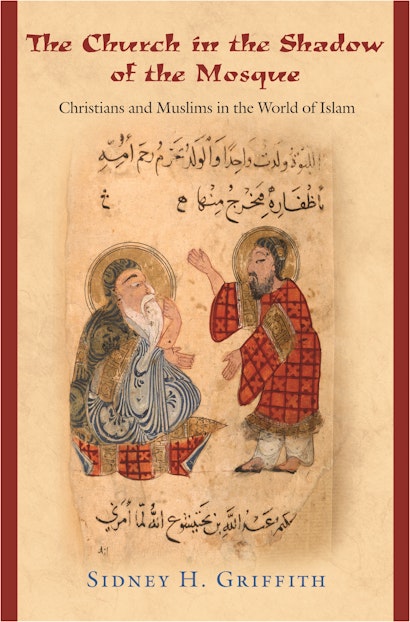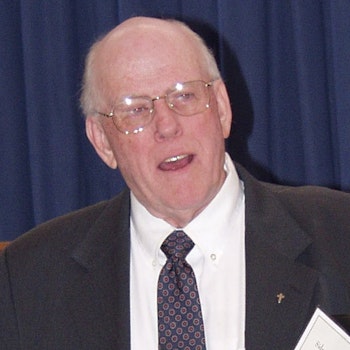Amid so much twenty-first-century talk of a “Christian-Muslim divide”—and the attendant controversy in some Western countries over policies toward minority Muslim communities—a historical fact has gone unnoticed: for more than four hundred years beginning in the mid-seventh century, some 50 percent of the world’s Christians lived and worshipped under Muslim rule. Just who were the Christians in the Arabic-speaking milieu of Mohammed and the Qur’an?
The Church in the Shadow of the Mosque is the first book-length discussion in English of the cultural and intellectual life of such Christians indigenous to the Islamic world. Sidney Griffith offers an engaging overview of their initial reactions to the religious challenges they faced, the development of a new mode of presenting Christian doctrine as liturgical texts in their own languages gave way to Arabic, the Christian role in the philosophical life of early Baghdad, and the maturing of distinctive Oriental Christian denominations in this context.
Offering a fuller understanding of the rise of Islam in its early years from the perspective of contemporary non-Muslims, this book reminds us that there is much to learn from the works of people who seriously engaged Muslims in their own world so long ago.
Awards and Recognition
- Winner of the 2008 Albert C. Outler Prize, American Society of Church History
"The Church in the Shadow of the Mosque makes a contribution to the understanding of relations between Christians and Muslims that is both necessary and enriching. Its author, Sidney Griffith, has almost unparalleled knowledge of his subject, and brings together here the fruit of decades of painstaking work in Syriac and Arabic to piece together a history that gives color to Christian-Muslim relations, and illuminates many of the points of controversy between the faiths by situating them in a historical context."—David Thomas, Middle East Journal
"This splendid book provides a revelatory account of those Christians—and they were legion—who lived under Islamic rule between the time of Mohammed and the Mongol conquests in the Near East during the 13th century....Through a close reading of the texts they produced, Griffith explores the unique theological and ecclesiological visions fashioned by these often unsung Christians."—Jonathan Wright, Catholic Herald
"This is a wonderfully written and important book—so much so that immediately after reading it, I started recommending it to students in two courses on 'Eastern Christianity and the Encounter with Islam' that I am teaching currently. From Griffith we should expect nothing less than such a masterful treatment for he has spent the last thirty years researching Muslim-Christian relations, research he displays here with elegance and cogency—and in a thirty-page bibliography, which is most useful."—Adam A. J. DeVille, LOGOS: A Journal of Eastern Christian Studies
"Sidney Griffith's work is a milestone in the field of classical Christian-Arabic studies. It provides specialists in the field as well as the general reader with wide-ranging information, precious insights and judicious assessments."—Christian Troll, The Tablet
"In [The Church in the Shadow of the Mosque], Griffith sets out to correct important facets of the history of Muslim/Christian interaction. One of the most fascinating aspects of this history is the way in which the Arabization of oriental Christians provided them with a new language and a new cultural medium in which to rearticulate doctrines that they considered central to their faith."—M. Swartz, CHOICE
"In today's English-speaking world, Griffith's lucid reintroduction of these thinkers should be welcomed both by Christians seeking to honor non-European expressions of Christian faith and by Muslims interested in reconciling Islamic ways of knowing with the Western commitment to empirical knowledge and ideas of cause and effect."—Richard J. Jones, International Bulletin of Missionary Research
"In a post-modern, pluralistic, global environment, core Christian beliefs will face new challenges. One of the most overt challenges will come from a close encounter with Islam. This book will be a vital, even necessary, resource in filling in a major historical gap in that encounter."—Everett W. Huffard, Book Reviews
"After more than thirty years of specialized research focused on the literature of Arabic Christian theology, Sidney Griffith seeks to introduce this part of Eastern Christianity's intellectual and cultural heritage to a broader audience. This is a worthy undertaking, realized in a way that non-experts are likely to consider accessible and appealing."—Stanley H. Skreslet, Interpretation
"Sidney Griffith's book elegantly enlarges conventional conceptions frequently found in histories of Christianity. . . . The book provides access to a field of study that is usually not open to non-specialists. It also offers points of reflection and debate for scholars who themselves are interested in opening their respective areas of study to non-specialists across the disciplines."—Kirsten Ruther, Canadian Journal of History
"This important book, more than twenty-five years in the making, represents a significant contribution to the history of Christian-Muslim dialogue by an acknowledged expert on the interaction between indigenous Christians, particularly those of the Eastern Church's, and their Muslim rulers, resulting from the meteoric expansion of the new religion. Of value to the specialist, not least for the extensive bibliography provided, the book is nevertheless written in such a way as to be accessible to the general reader."—John Flannery, Cambridge Journals
"This will become a valuable resource for many years to come. . . . In a post-modern, pluralistic, global environment, core Christian beliefs will face new challenges. One of the most overt challenges will come from a close encounter with Islam. This book will be a vital, even necessary, resource in filling in a major historical gap in that encounter."—Evertt W. Huffard, Missiology
"The study offers engaging and accessible reading for the layman, as well as a helpful overview for the researcher—some thirty pages of reference literature will prove useful for anyone who embarks on the search of the earliest Christian-Muslim contacts."—Ljubica Miocevic, European Legacy
"This book is a welcome synthesis of a lifetime of scholarship that lays out the little-known history of churches under Islam that whets the appetite to learn more."—Daniel Joslyn-Siemiatkoski, Anglican and Episcopal History
"This is an important and helpful volume. It reminds us that Christian-Muslim dialogue has a long history. It helps us understand the beginning of Christian-Muslim dialogue that predated thinkers like Peter Abelard and Thomas Aquinas. . . . [Griffith's] volume might well help us think about how better to engage and encounter Muslims in interfaith conversation."—David C. Ratke, Dialog
"[T]his book provides an excellent introduction of the pertinent material and literature. It is also useful for scholars who wish to pursue further the topics that Griffith raises because he includes a wealth of resources in the footnotes and bibliography. Thanks to Griffith's work, the history of Christianity in the East does not lie completely in the shadow."—J. Edward Walters, Restoration Quarterly
"The volume is very nicely produced. A good index is provided, and over 30 pages of bibliography. . . . It can indeed serve as an excellent guide."—Michael L. Fitzgerald, Bibliographie
"The Church in the Shadow of the Mosque is a book of uncommon learning and profound insight. The clarity of understanding, conciseness of presentation, and lucid command of deeper ramifications are qualities that only years of intimacy with the material can yield. This is a book that few scholars could have produced. It is also acutely timely. Scholars and students, as well as interested general readers, will find this book fruitful, engaging, challenging, and rewarding."—Susan Ashbrook Harvey, Brown University
"In this book, one of the most prominent scholars in the field builds on his previous work to tell the story of the formation and development of Arab Christianity. Sidney Griffith forcefully argues for the unique character of the Christian Arabic profile. Such a book is badly needed. Reflecting the author's erudition and replete with insights, it opens the rich cultural world of the Arab Middle Ages to nonspecialists."—Sarah Stroumsa, Hebrew University of Jerusalem


